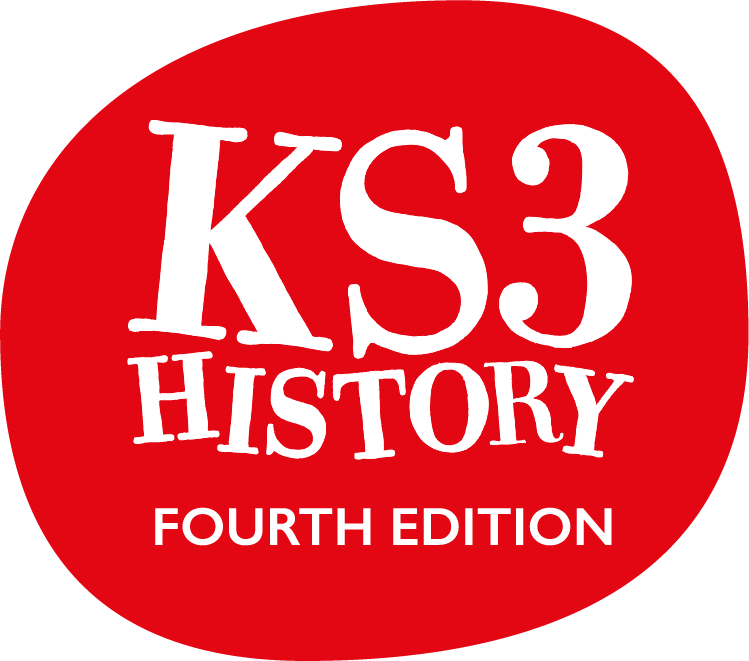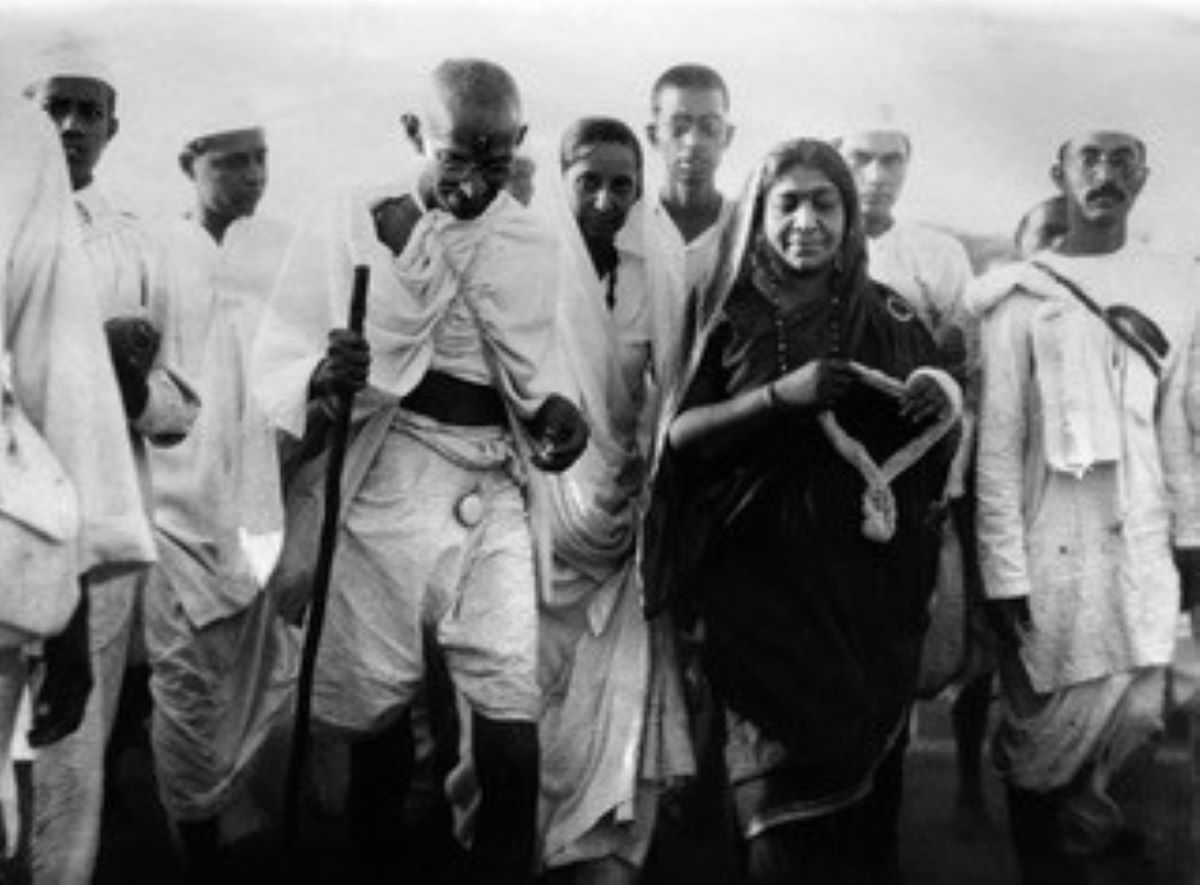Mohandes Gandhi with Sarojini Naidu on the Salt March, a non-violent protest against the British monopoly of salt production and distribution in India.
Aaron Wilkes (AW) and Shalina Patel (SP) discuss the changes that have been happening within the KS3 History curriculum and suggest ways in which schools can incorporate these changes into their teaching of the British Empire.
In the Historical Association Secondary Survey 2021, carried out amongst History departments, 87% of those schools surveyed reported making big changes to their KS3 curriculum in recent years to address issues of inclusivity and diversity.
AW: What has triggered the changes schools are making to their History curriculum?
SP: In light of recent events, such as the toppling of Edward Colston’s statue, public interest in historical events has increased and has led to a lot of soul searching. There is now a greater sense of social justice. People have started to reflect on what they learnt at school. Many don’t remember learning about the British Empire. The teaching community has come together with a desire to give a fuller picture, to highlight often ignored contributions of often marginalised people.
AW: At the University of Warwick, we offer several choices of assignment to PGCE students, such as: ‘History being a vehicle for literacy’; ‘Teaching sensitive issues’; and ‘Exploring the extent History curricula reflect diversity and inclusivity’. This latter topic is by far the most popular amongst students, most of whom are in their early 20s. This shows the importance that is attached to this subject by young people coming up through the educational system.
AW: Why should we study the British Empire?
SP: You cannot remove the British Empire from British History. It is inextricably linked and connected to so many things that we already teach in schools: the Tudors mark the beginning of the British Empire; everyone teaches World War I and World War II and that’s also linked. The British Empire is everywhere in everything that we teach. So, it’s about bringing that context to students.
AW: That’s right. Such questions as: What is an Empire? Why did countries want them? These are big questions. A study of the British Empire at KS3 allows schools to answer some of the questions that they’re asking of their own curriculum: ‘Is the cultural heritage of all our students represented in our curriculum?’; ‘Is our curriculum reflective of local, national and international perspectives?’; ‘Do the materials that we teach with reflect up-to-date scholarship?’ The British Empire allows us to answer some of those questions. It gives us the opportunity to reflect on the cultural heritage of our students.
SP: RecentIy, I had the opportunity to teach a Year 8 class about Mughal India. There were students of Indian heritage in the class, asking so many questions, making links between their own cultural heritage and mine. I could see that they felt so connected to this history. Another reason why we should teach the British Empire is that it shows us the impact if we don’t teach about it. For example, there’s so much misunderstanding of Britain’s role in the slave trade, because of the absence in really interrogating that history. People assume it’s a part of American history and not British. So, by not teaching it, we’re going to have problems with students’ understanding.
Thinking of the general skills that young people need, with the amount of scholarship and interpretation, etc. that there’s been around the British Empire, it’s such a brilliant context to help skill them up for the future. Our students need to be able to interrogate the origin of sources and see all of these things.
AW: We want to encourage young people to ask perceptive questions, to think critically, weigh evidence, sift through arguments, develop perspective and judgement. A study of the British Empire at KS3 does all of that and enables us to do that.
AW: How has historical scholarship changed and what impact does this have for the teaching of the British Empire?
SP: As History teachers we are living in such an exciting time in terms of what historians are writing about the British Empire. We have so much scholarship that’s centring those marginalised voices. For example, Empireland by Sathnam Sanghera who’s writing about his own journey of learning and understanding the Empire. Also, there are so many people finding these really interesting stories or aspects of empire. Another example is Kavita Puri on Partition.
AW: What advice would you give to a teacher who’s concerned about teaching sensitive issues as part of the British Empire?
SP: If you’re at the beginning of your teaching journey, it’s key that you feel confident in your teaching. There are some brilliant podcasts that can support you and which cover sensitive topics, such as Partition Voices by Kavita Puri and Empire by William Dalrymple and Anita Anand. Feeling confident in your own understanding is really important. Also, have a conversation with your department about the language you use. Thinking about language is so important and helps to ensure that everyone’s on the same page.
AW: You need to be willing to reflect and relearn. Know yourself, know your community, know your students when you’re teaching sensitive topics. Perhaps establish ground rules to help to create this atmosphere of respect and tolerance. Co-construct those rules with your students. Never leave intolerant remarks unchallenged, unexplored. Don’t ignore them.
SP: Also, it’s incredibly important to explain to students what we’re learning and why. Let them see how important it is that they’re represented in the stories they learn about. It doesn’t matter what type of school you teach in and what your students look like, this is incredibly important for everyone.
AW: What’s different about what we teach about the British Empire today?
SP: We’ve absolutely moved away from this ‘balance sheet’ idea of balancing issues – massacres with railways, for example. It’s about recentring the voices of the colonised. We shouldn’t just talk about the people who we’d normally associate with this struggle, we must also think about marginalised groups within that such as women. We need to widen the story and allow our students to interrogate those stories.
What year group would you suggest for teaching the British Empire at KS3?
SP/AW: Year 8/9 is perfect for teaching the British Empire. There are mature themes in this and it best fits with what schools teach in terms of other content at this level. For Year 7, African Kingdoms is a good topic to start with, so that students have learnt some African history before covering the slave trade.
The British Empire is the first in a series of four new KS3 History Depth Studies, published by OUP.
Author Biography

Aaron Wilkes has 25 years’ experience working in schools as a teacher, department, and faculty leader. He also works with the PGCE History trainees at the University of Warwick. Aaron is series editor of our hugely successful KS3 History series. Aaron tweets at @WilkesHistory.

Shalina Patel has more than 13 years of experience in the classroom and is former Head of History and currently Head of Teaching and Learning and leader of the ITT programme at Claremont High School Academy in London. Shalina showcases her passion for hidden histories via @thehistorycorridor Instagram account and she tweets at @Ms_PatelHistory.

